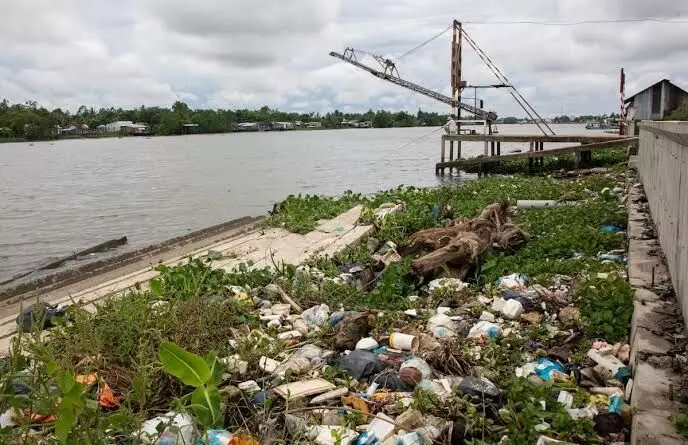World Environment Day: How growing plastic waste increases risk of flooding in Hyderabad
The discussions focused on how unmanaged plastic waste is being carried through open drains and nalas into Hyderabad’s lakes
By Newsmeter Network
Representational Image
Hyderabad: Experts have pressed the alarm button over the city's growing plastic pollution crisis.
Plastics are choking lakes, clogging stormwater drains, and increasing the risk of urban flooding.
Hyderabad generates over 8,000 tonnes of all forms of waste every day.
At a seminar on “Pollution of Water Bodies” organized by HYDRAA on World Environment Day here, environmentalists and civic leaders called for immediate, collective action to tackle the problem before it causes irreversible ecological damage.
Held under the leadership of HYDRAA Commissioner AV Ranganath, the event brought together environmental experts, academic researchers, social workers, and NGO representatives.
The discussions focused on how unmanaged plastic waste is being carried through open drains and nalas into Hyderabad’s lakes, polluting the water, destroying aquatic ecosystems, and blocking natural water flow.
“Plastic waste doesn’t disappear—it finds its way into our water systems. We need to act before it’s too late,” said one expert, urging citizens to understand the final destination of the plastic they discard.
Key issues raised
Environmental experts raised various key issues, including stormwater drains and nalas being overwhelmed by non-biodegradable waste, particularly single-use plastics, lack of segregation at source results in mixed waste being dumped or swept into water bodies, and frequent waterlogging and urban flooding are often a result of blocked drains caused by plastic accumulation.
They also stressed the urgent need for public awareness and behavioural change, alongside stronger enforcement of waste management laws.
They proposed a multi-pronged strategy, including strict implementation of plastic bans and support for large-scale recycling programs, city-wide awareness campaigns to educate citizens on proper waste disposal, deployment of technology such as drones and sensors to detect plastic waste hotspots and incentives for adopting eco-friendly alternatives like cloth bags, biodegradable packaging, and reusable containers.
Ranganath acknowledged the challenges and urged participants to submit actionable solutions. “Government policy alone cannot solve this issue. Public participation and community-driven efforts are key,” he said.
Participants included M Suryanarayana (Swachh Bharat campaigner), Subhash Reddy (Smaran NGO), Dr. Himabindu (Professor, JNTU), and Madhulika Chaudhary (social worker), who shared grassroots-level insights and proposed community-based interventions.
The event concluded with a collective call for a city-wide movement against plastic pollution, through stricter regulation, innovative solutions, and empowered citizen action, to safeguard Hyderabad’s water bodies and ensure long-term environmental sustainability.